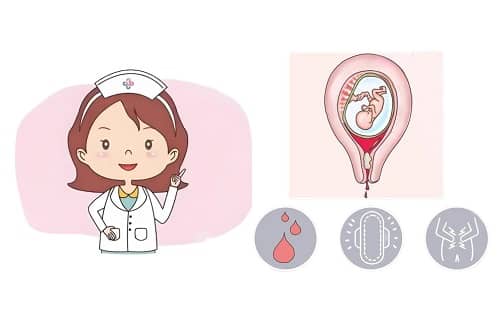Recurrent miscarriage refers to the occurrence of two or more consecutive miscarriages. For women who have experienced recurrent miscarriages, finding the underlying cause and receiving appropriate treatment is crucial. With scientific treatment and a healthy lifestyle, many women are able to conceive again and deliver a healthy baby. Below is a detailed explanation of the treatment methods for recurrent miscarriage.

Table of Contents
- 1. Treatment Based on the Cause
- Surgical Repair of Anatomical Issues
- Hormonal Regulation
- Addressing Immune Issues
- Genetic Interventions
- Infection Treatment
- 2. Lifestyle Improvements
- Quit Smoking and Limit Alcohol
- Balanced Nutrition
- Moderate Exercise
- Regular Sleep Schedule
1. Treatment Based on the Cause
The first step in effectively treating recurrent miscarriage is identifying the specific cause. Common treatment methods include:
Surgical Repair of Anatomical Issues
Uterine abnormalities or intrauterine adhesions are common causes of miscarriage. If these issues are detected, doctors may recommend surgical procedures, such as a hysteroscopy, to correct the uterine structure or perform a surgery to separate intrauterine adhesions, thus restoring the normal uterine shape and providing a suitable environment for embryo implantation and development.
Hormonal Regulation
Hormonal imbalances, particularly progesterone deficiency or thyroid issues, can also lead to miscarriage. Based on the results of diagnostic tests, doctors often prescribe hormones like progesterone or other medications to help regulate hormone levels and support pregnancy. For women with polycystic ovary syndrome (PCOS), medications or surgery may also help regulate ovulation and reduce the risk of miscarriage.
Addressing Immune Issues
Some recurrent miscarriages may be related to immune factors, such as maternal immune rejection of the embryo. By testing immune markers, such as anti-embryo antibodies, doctors can create a tailored treatment plan to suppress the immune response and protect the embryo from being rejected, ensuring successful implantation and development.
Genetic Interventions
If either partner has chromosomal abnormalities, it may increase the risk of miscarriage. In such cases, assisted reproductive technologies (such as IVF) combined with genetic screening can increase the chances of pregnancy and reduce the risk of genetic miscarriages.
Infection Treatment
Certain infections, such as toxoplasmosis, cytomegalovirus (CMV), or rubella, can lead to miscarriage. Treatment typically involves comprehensive screening for infections, and once the source is identified, doctors prescribe antiviral, antibacterial, or antifungal medications to treat the infection and ensure the safety of a future pregnancy.
2. Lifestyle Improvements
In addition to treatment based on the cause, improving lifestyle habits is an essential factor in preventing miscarriage:
Quit Smoking and Limit Alcohol
Smoking and alcohol consumption are harmful to embryo development and must be completely avoided, particularly during pregnancy planning.
Balanced Nutrition
Consuming adequate amounts of folic acid, iron, calcium, and vitamin D helps support healthy fetal development. A well-balanced diet also strengthens the mother’s immune system and fertility.
Moderate Exercise
Regular, moderate exercise promotes circulation, helps regulate weight, and balances hormones. Light exercises such as walking or yoga can maintain physical health, but it is important to avoid excessive or strenuous physical activity.
Regular Sleep Schedule
Maintaining a healthy sleep routine is crucial to ensuring enough rest and helping the body recover. Proper sleep contributes to a well-functioning immune system and overall health.
Conclusion
Recurrent miscarriage, although painful, is not an insurmountable challenge. With targeted medical treatment, scientific diagnosis, and positive lifestyle changes, many women can overcome this obstacle, successfully conceive again, and welcome a healthy baby. With professional intervention and an active approach to health, recurrent miscarriage no longer needs to be a barrier to having a child.